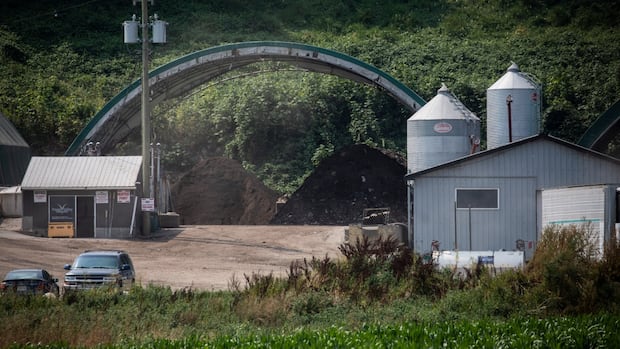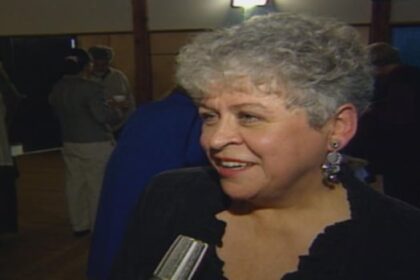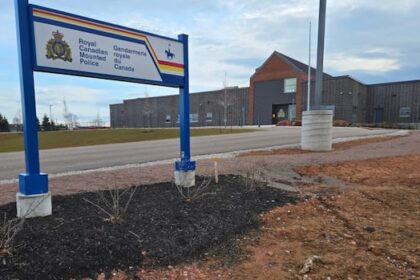British ColumbiaFraser Valley Renewables, a B.C. organics company with outstanding environmental violations, has shuttered its doors amid a court-ordered receivership against the company, its affiliates and its owner.Fraser Valley Renewables and affiliates close doors after going into receivershipJon Hernandez · CBC News · Posted: Sep 02, 2025 12:32 PM EDT | Last Updated: 5 hours agoThe Fraser Valley Agri-Waste Solutions Ltd. facility is seen at 5205 Bates Rd. in Abbotsford, B.C, on July 30. Affiliate company Fraser Valley Renewables is in receivership following a court order citing debts in excess of $16 million owed to the Bank of Nova Scotia. (Ben Nelms/CBC)A polluting B.C. organics company with outstanding environmental violations has shuttered its doors amid a court-ordered receivership against the company, its affiliates and its owner.Fraser Valley Renewables owner Matthew Malkin, and affiliate companies Fraser Valley Agri Waste, Huntingdon Agricultural, and an associated numbered company, are in receivership following a court order citing debts in excess of $16 million owed to the Bank of Nova Scotia.The financial woes follow the companies’ lengthy history of environmental violations, including dumping untreated municipal waste at unauthorized sites in the Fraser Valley — offences that have drawn the ire of nearby residents and yielded fines from provincial inspectors.A petition to the B.C. Supreme Court filed on July 24 on behalf of the bank alleged Malkin and his companies owed the bank $16.4 million plus accrued interest from loans dating back to 2020, claiming the debtors defaulted on payments and broke financial commitments.WATCH | Fraser Valley Renewables goes into recievership: B.C. organics company goes into receivershipFraser Valley Renewables, a B.C. organics company, has gone into receivership. Court documents show the business defaulted on debts upwards of $16 million. As CBC’s Jon Hernandez reports, the company has outstanding environmental violations. The petition claimed the businesses were operating at a loss and that they had made unauthorized advances to an affiliate also controlled by Malkin.The Bank of Nova Scotia also raised concerns about the “environmental risk due to the nature of the business,” referring to their history of pollution which, in June 2025, included a fine against Fraser Valley Agri Waste for being over triple capacity at its composting site in Abbotsford.On Aug. 21, a judge signed a receivership order on Malkin and his companies, giving tax agency PricewaterhouseCoopers control over the businesses, their associated properties, and their assets, which it has the power to sell or liquidate to repay the outstanding debt.CBC News reached out to Malkin for comment but didn’t hear back.Ongoing environmental violationsAmong properties now under the receiver’s control is a facility on Huntingdon Road in Abbotsford where, in 2024, inspectors said they found piles of wood, plastic and rubber causing continuous effluent discharge or liquid waste to flow into the environment.Discharge pools are photographed by provincial inspectors at the bottom of a waste pile at the Huntingdon property in Abbotsford. (B.C. Environment Ministry)The report described the fluid as “black, brown and/or frothy effluent pooling at the base of the piles, and flowing to puddles, ponds or wetlands and subsequently discharging to Salish Creek and Pepin Brook.”The streams are home to two types of endangered fish: the Nooksack dace and the at-risk Salish sucker. The report said the piles also sat over a vulnerable aquifer.The environmental issues are ongoing, and on July 8, the case was referred for a financial penalty, and Fraser Valley Agri Waste was ordered to take “corrective measures” within 30 days.Under the receivership, the pollution prevention order has been stayed until Sept. 22, but that could be extended “pursuant to the written agreement of the Receiver and the Ministry of Environment and Parks or further order of this court,” the order states.CBC News reached out to B.C.’s Ministry of Environment to ask who is now responsible for the cleanup, but it declined to answer while the matter is before the courts.Provincial inspectors said they found piles of wood, plastic and rubber at the Huntingdon property that were causing continuous effluent discharge or liquid waste to flow into the environment. (B.C. Environment Ministry)However, court documents suggest provincial officials are hoping the receiver will clean it up.In an email to the Bank of Nova Scotia and the receiver’s lawyers dated Aug. 20, Aaron Welch, a lawyer with B.C.’s attorney general’s office, noted that the discharge remained a problem and that it’s required to be monitored.”Given the state of the property, wouldn’t it be in the bank’s/receiver’s interests to comply with the order to make the property more saleable?” wrote Welch.CBC News reached out to PricewaterhouseCoopers to ask if it would assume responsibility for cleaning up the land, but it declined to answer.Fraser Valley Renewables dropped off eight truckloads of waste at an unauthorized property near Hope, according to B.C. Environment Ministry inspectors. (B.C. Environment Ministry)Fraser Valley Renewables is also facing financial penalties for relocating illegal waste from the Columbia Valley near Cultus Lake to another unauthorized site near Hope.Darcy Henderson, one of many residents who fought to get the waste moved from her community, is concerned the receivership could lead to delays getting the pollution cleaned up.”It doesn’t answer a lot of questions such as what happens to the product left behind, and the messes left behind,” she said. ABOUT THE AUTHORJon Hernandez is an award-winning multimedia journalist from Vancouver, British Columbia. His reporting has explored mass international migration in Chile, controversial logging practices in British Columbia, and the global HIV/AIDS epidemic.Follow Jon Hernandez on Twitter: @jonvhernandez
B.C. composter with polluting history shuttered amid financial woes











